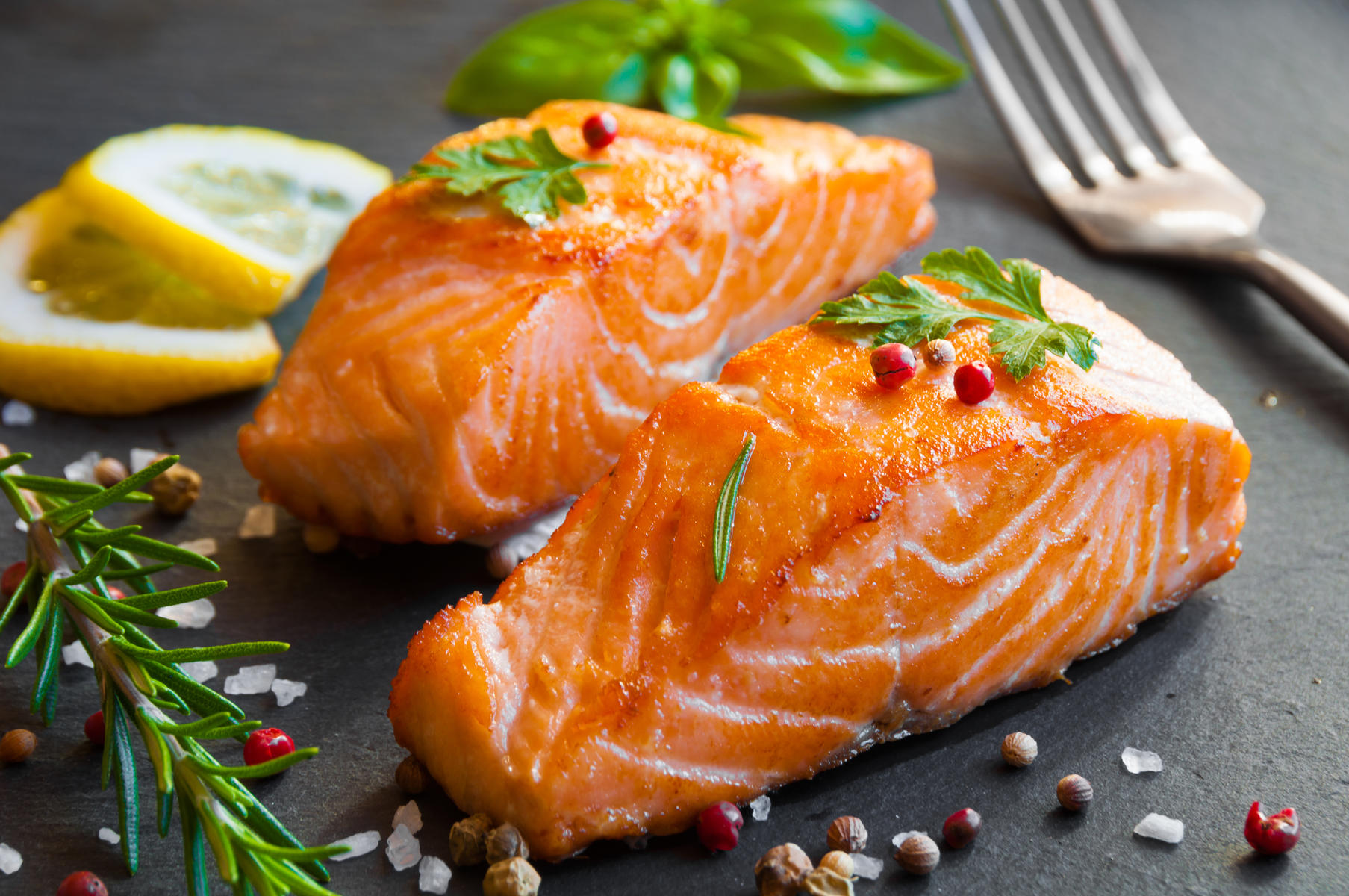
Oysters may be a famous aphrodisiac, but according to a new study, so is grouper. Ditto for shrimp, salmon, and tilapia. There's another perk too: Couples who regularly eat seafood not only have more sex but also get pregnant faster.
Researchers at Harvard followed 501 couples in Texas and Michigan who were trying to conceive. They found that when both partners ate at least eight four-ounce servings per cycle (that's about two servings per week), couples had 61 percent greater fertility compared to couples eating less. Eighty-one percent of them were pregnant within six months, and 92 percent were pregnant with a year.
They also had sex more frequently–and the odds of having intercourse were 39 percent higher when both partners ate seafood on the same day.
"Our results stress the importance of not only female, but also male diet on time to pregnancy and suggests that both partners should be incorporating more seafood into their diets for the maximum fertility benefit," says Audrey J. Gaskins, ScD, a research associate at Harvard T.H. Chan School of Public Health.
In the past, shellfish like oysters have been linked to stronger libido because they're a good source of zinc, a mineral shown in human studies to boost testosterone (and in animal studies to improve sexual competence), explains Gaskins. Other possible explanations for better fertility: Seafood and omega-3 fats may improve the quality of quantity of sperm in men and increase the chances of ovulation in women. Past research has shown better embryo development among women with higher fish and intake of DHA, a kind of omega-3 fat found in fish.
It's also possible that seafood eaters are healthier eaters overall, which could up the odds of conceiving.
Though fish may be good for fertility (and for babies' brains), some women are understandably worried about contaminants in fish and seafood such as mercury when they're trying to conceive and during pregnancy. A 2005 FDA survey found that women eat just two ounces of fish per week on average.
But according to the FDA, it's safe for women to eat 2-3 servings a week of a variety of lower-contaminant fish such as:
Women (and kids) should completely avoid king mackerel, marlin, orange roughy, shark, swordfish, tilefish, and bigeye tuna, which tend to contain higher levels of contaminants. See the full lists of fish to choose and avoid here.
Sally Kuzemchak, MS, RD, is a registered dietitian, educator, and mom of two who blogs at Real Mom Nutrition. She is the author of The Snacktivist's Handbook: How to Change the Junk Food Snack Culture at School, in Sports, and at Camp—and Raise Healthier Snackers at Home. She also collaborated with Cooking Light on Dinnertime Survival Guide, a cookbook for busy families. You can follow her on Facebook, Twitter, Pinterest, and Instagram. In her spare time, she loads and unloads the dishwasher. Then loads it again.
